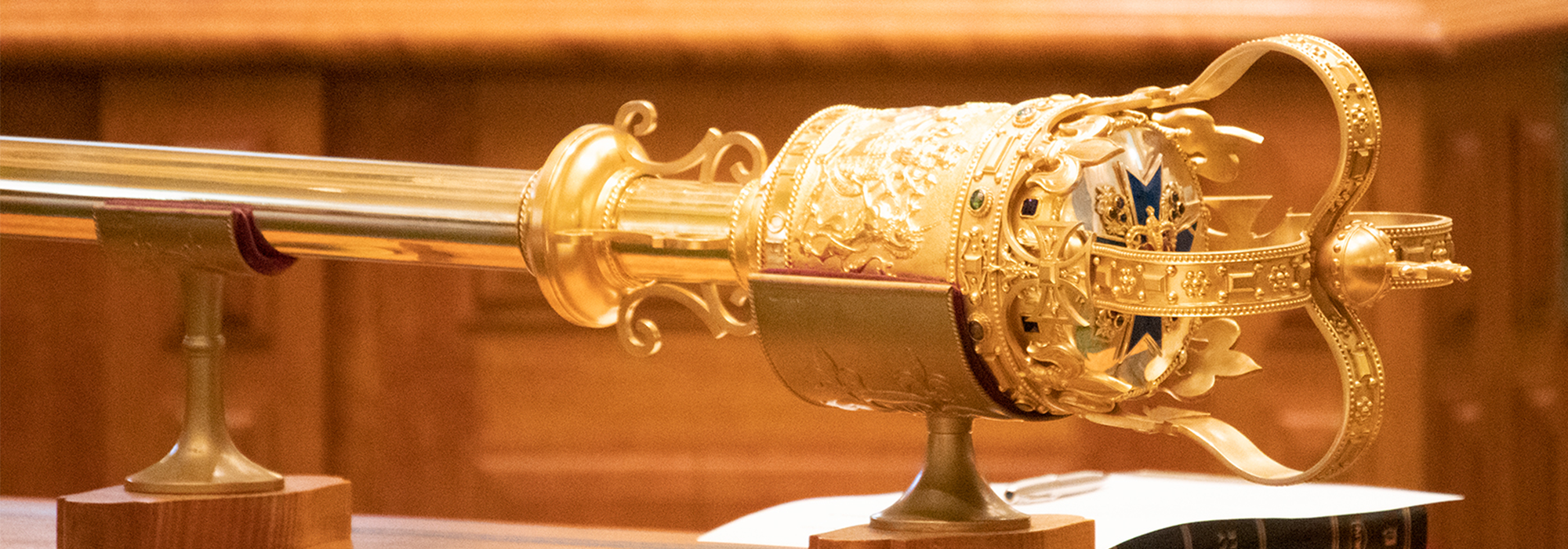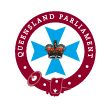-
Visit and learn
- Message from the Speaker
-
About Us
- A day in the Life of the Queensland Parliament
- The Executive Government of Queensland
- Officers of the Queensland Parliament
- The Origins of the Queensland Parliament
- The Queensland Parliament and Parliamentary Process
- Parliamentary Scrutiny via Parliamentary Committees
- The Queensland Parliament and the Financial Process
- The Queensland Parliament and the Legislative Process
- The Queensland Constitution
- The Queensland Electoral System
- The Role of Parliament
- Separation of Powers
-
Learn About Parliament
- Information For
- Visitors
- Visit the Public Gallery
- Visit our Gift Shop
- Have Your Say
- Get Involved
- Education and Learning
- History
- Heritage Collections
- Preservation of our Heritage
- Regional Sittings
- CPA Australia and Pacific Regional Conference
- Publications and Reports
- Speakers' Corner
- Opening of the 58th Parliament
- Parliamentary Annexe Reparation and Refurbishment
- Contact Us

The Queensland Parliament consists of the Queen (usually represented by the State Governor) and the Legislative Assembly. The Legislative Assembly consists of 93 directly elected Members, representing 93 electorates. This structure is defined in Section 2A of the Constitution Act 1867 .
The Governor
The Governor is appointed by the Queen on the advice of the Premier usually for a term of five years. This term may be extended if both parties are mutually agreeable. As the formal representative of the Queen, the Governor must always remain non-political. The Governor represents all Queenslanders and it is the Governor's duty to ensure that Queensland enjoys stable government.Some of the specific roles and functions of the Governor include:
- giving Royal Assent to Bills passed by the Legislative Assembly
- summoning, proroguing and dissolving Parliament on the advice of the Premier
- recommending by a message to the Legislative Assembly, the passing of money bills prior to their introduction in the House
- appointing all Ministers (members of the Executive Council), and appointing and removing officials, on the advice of the Executive Council
- presiding over meetings of, and taking the advice of, the Executive Council. This role is titled Governor in Council
- issuing writs, on the advice of the Executive Council, for state elections, and writs for the election of Queensland representatives in the Australian Senate and
- granting to an offender, in the name of the Queen, a pardon or commutation of sentence or reprieve of the carrying out of a sentence or the remission of a fine or penalty.
The Legislative Assembly
The Queensland Parliament is a unicameral parliament, meaning that it is comprised of only one House, that is, the Legislative Assembly. There are 93 Members of the Legislative Assembly. Each Member represents an electorate with an average of approximately 34,000 enrolled persons (Electoral Commission of Queensland figures as at November 2017). The political party, or coalition of parties, with a majority of Members elected to the Legislative Assembly forms the Government.
Functions of the Legislative Assembly
To Make Laws
According to the Section 2 of the Constitution Act 1867, the Parliament has the power to make or amend laws for "the welfare, peace and good government" of the State 1. The Legislative Assembly passes Bills (pieces of legislation in draft form). However, they do not become Acts of Parliament until the Governor gives Royal Assent by signing as the Queen’s representative.
To Provide the Government of the Day
As stated above, the party or coalition of parties with the majority of Members in the Legislative Assembly forms the Government.
To Grant Supply
Each year, the Treasurer brings down the State Budget in the form of Appropriation Bills. Before these Bills can be introduced, the Legislative Assembly must receive a message from the Governor giving permission for that to occur. It is an important element of the Westminster system that all expenditure by the Government is approved by the Parliament.
To Scrutinise the Actions of the Government
The Government is accountable to the Parliament. Members of Parliament keep a check on the Government’s work during debates in the parliamentary Chamber and particularly during Question Time when non-Government Members and Government backbenchers ask Government Ministers questions about their portfolios. Some parliamentary committees also scrutinise Government activities and review legislation.
To Represent the People
As a representative of all the constituents in their electorate, the demands on the Member of Parliament and their electorate office staff can be quite profuse and diverse. Members give assistance and advice to those in difficulty; act as a lobbyist for local interest groups; are communicators for their party’s policies; and play an active community role. During debates in the Parliament, Members have the opportunity to raise issues and speak on behalf of their electorates.- The Australian Constitution specifies a few exceptions to this almost unlimited power. For example, States may not impose duties of customs and excise or raise defence forces without the consent of the Commonwealth Parliament.
